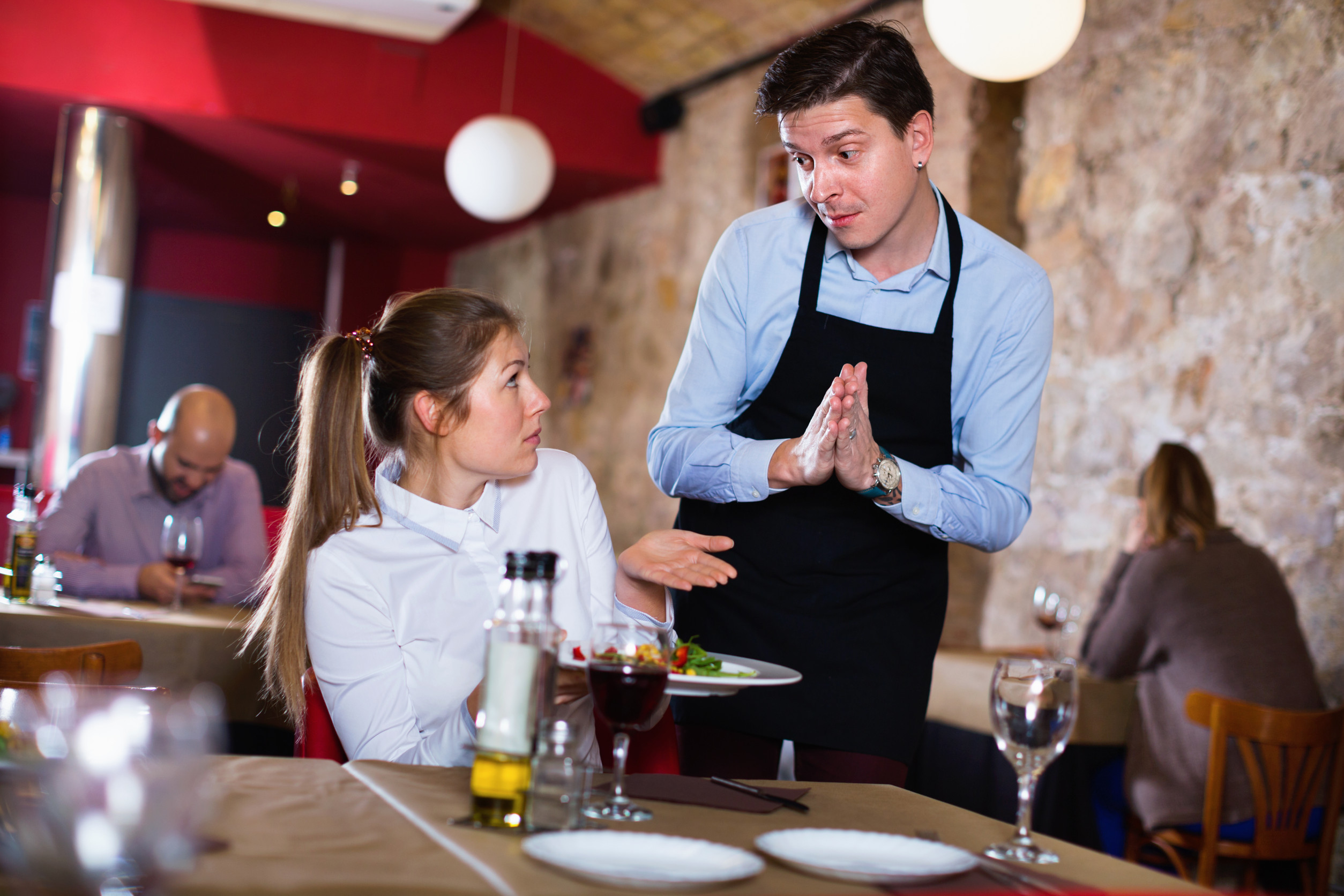
Dining at an upscale restaurant often involves higher prices, refined ambiance, and an expectation of certain behavioral standards. It’s an experience meant to be enjoyed, showcasing culinary skill and attentive service. However, certain behaviors exhibited by diners can disrupt the atmosphere, disrespect staff, and detract from the experience for everyone else present.
While occasional minor etiquette slips happen, consistently engaging in obnoxious actions shows a lack of consideration. To ensure a pleasant experience for yourself and others, avoid these eleven common faux pas at fine dining establishments.
1. Talking Excessively Loudly or Taking Loud Phone Calls
Upscale restaurants cultivate an atmosphere conducive to conversation and enjoyment of the meal. Excessively loud talking, laughing, or shouting carries easily and disrupts nearby tables trying to have their own quiet conversations. Similarly, taking phone calls at the table, especially if loud or prolonged, is highly disruptive. Step outside or to a designated area if you must take a call. Modulate your speaking volume to be appropriate for the intimate setting. Respect the shared ambiance.
2. Letting Children Run Around or Be Overly Disruptive
While some upscale restaurants welcome well-behaved children, they are generally not environments designed for kids to roam freely or be excessively noisy. Parents are responsible for ensuring their children remain seated and maintain a reasonable noise level. Letting kids run between tables, play loudly with devices, or have tantrums without attempting to soothe them or step outside impacts every other diner’s experience negatively. Choose restaurants appropriate for your children’s behavior or ensure they understand expectations beforehand.
3. Over-the-Top Photo Taking (Flash, Standing Up, Rearranging)
Quickly and discreetly snapping a photo of your beautiful dish is usually acceptable. However, turning your table into a photo shoot is obnoxious. Avoid using flash photography, which is jarring to others. Don’t stand up or move around excessively to get the perfect angle. Refrain from elaborately rearranging tableware or asking staff to hold plates for photos. Be mindful that you’re in a shared dining space, not a private studio. Capture the memory quickly and respectfully.
4. Treating Service Staff Rudely or Condescendingly
Service staff in upscale restaurants are trained professionals. Treating them with disrespect – snapping fingers, being demanding or condescending, arguing aggressively over minor issues, or blaming them for things outside their control (like kitchen speed) – is unacceptable. Address concerns politely and reasonably. Remember “please” and “thank you.” A positive, respectful interaction benefits everyone. Good service deserves appreciation, not arrogance or entitlement from diners.
5. Making Excessive or Unreasonable Menu Modifications/Substitutions
Chefs at fine dining establishments carefully craft dishes with specific flavor profiles and presentations. While accommodating allergies or minor dietary restrictions is standard, requesting numerous complex modifications or substitutions can be disruptive to the kitchen and disrespectful to the chef’s vision. If you have significant restrictions, it’s best to inquire when booking or choose dishes aligning with your needs. Don’t try to redesign the menu at the table with excessive demands.
6. Overstaying Your Welcome Significantly (Table Camping)
Enjoying a leisurely meal is expected. However, occupying a table for an excessive amount of time long after finishing your meal and paying the bill, especially during peak hours when other diners are waiting, is inconsiderate. This practice, sometimes called “table camping,” prevents the restaurant from serving other guests and impacts staff turnover and earnings. Be mindful of the time, especially if the restaurant appears busy. Continue lengthy conversations at the bar or another location if possible.
7. Ignoring Stated Dress Codes (If Applicable)
While many upscale restaurants have relaxed dress codes, some still maintain specific standards (e.g., jackets required, no shorts or flip-flops). If a dress code is stated on the website or during booking, adhere to it respectfully. Showing up significantly underdressed not only disrespects the establishment’s requested ambiance but can also make you and your dining companions feel out of place. Check beforehand and dress appropriately for the intended level of formality.
8. Complaining Loudly or Aggressively to Seek Comps/Discounts

If there’s a genuine issue with your food or service, address it calmly and discreetly with the manager. Complaining loudly at the table, making a scene, or aggressively demanding free items (“comps”) or discounts is poor form. It disrupts other diners and puts staff in an uncomfortable position. Legitimate concerns should be handled professionally. Exaggerating issues solely to get something for free is unethical and reflects poorly on the diner.
9. Bringing Outside Food or Drink (Without Prior Permission)
Unless you have explicit prior permission for a specific reason (like a celebration cake with a cutting fee, or wine with a corkage fee), bringing your own food or beverages into a restaurant is generally prohibited. This includes snacks for children or personal water bottles. Restaurants rely on selling their own menu items. Circumventing this disrespects their business model. Always inquire beforehand about policies regarding outside items if you have a special need.
10. Engaging in Excessive Public Displays of Affection (PDA)
A romantic atmosphere is one thing; overly intimate or suggestive behavior is another. Engaging in heavy petting, prolonged passionate kissing, or other excessive public displays of affection makes fellow diners uncomfortable. Fine dining restaurants are public spaces requiring a degree of decorum. Keep intimate moments appropriate for the setting. Be mindful that your actions impact the comfort level of those around you sharing the same space.
11. Making Complex Bill Splitting Requests Unexpectedly
If dining with a group and needing separate checks or complex item-by-item splitting, inform your server at the *beginning* of the meal, not when the bill arrives. Presenting a complicated splitting request unexpectedly at the end, especially during a busy time, creates significant extra work and potential for errors. Planning ahead allows the server to manage the checks efficiently throughout the meal. Using payment apps among yourselves afterward is often the easiest solution for complex splits.
Respect the Shared Experience
Dining at an upscale restaurant is a shared experience built on mutual respect – among diners, between diners and staff, and for the establishment itself. Avoiding obnoxious behaviors like excessive noise, disrespecting staff, disregarding rules, or disrupting others ensures a pleasant atmosphere for everyone. Practicing basic dining etiquette and consideration allows you to fully enjoy the culinary artistry and ambiance while contributing positively to the shared environment. Thoughtful conduct enhances the experience for all involved.
What behaviors annoy you most when dining out at nicer restaurants? Do you think etiquette standards have changed significantly? Share your dining pet peeves and thoughts below!
Read More:
6 Things You Should Never Say to a Waitress (If You Want a Good Dining Experience)
Dining Out With Friends: 6 Situations When Splitting the Bill Is Actually Unfair

Latrice is a dedicated professional with a rich background in social work, complemented by an Associate Degree in the field. Her journey has been uniquely shaped by the rewarding experience of being a stay-at-home mom to her two children, aged 13 and 5. This role has not only been a testament to her commitment to family but has also provided her with invaluable life lessons and insights.
As a mother, Latrice has embraced the opportunity to educate her children on essential life skills, with a special focus on financial literacy, the nuances of life, and the importance of inner peace.
